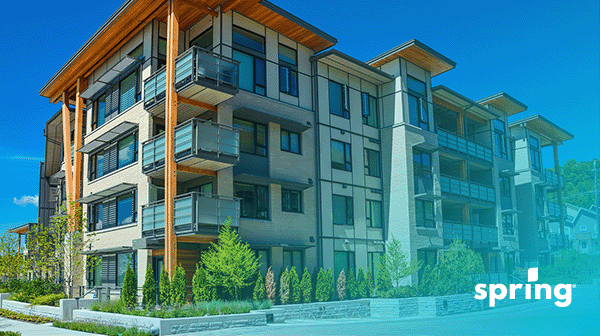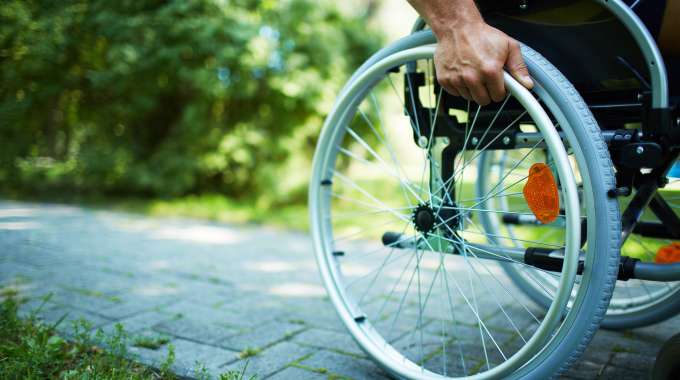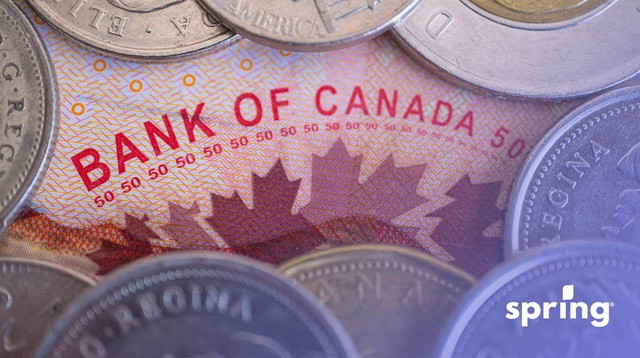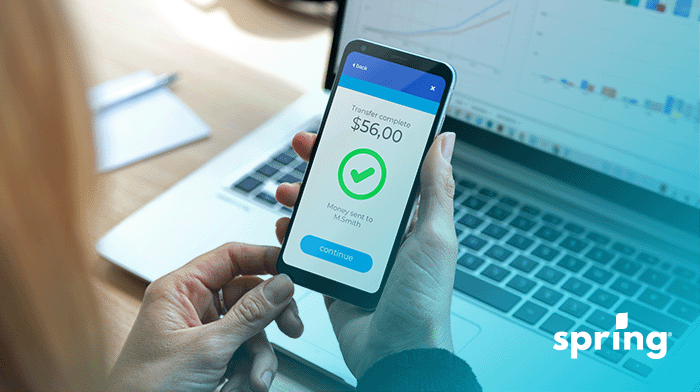While the terms leasehold and freehold may seem complex, they actually have very simple meanings. If you purchase a property with a leasehold, this means that you own the property for a set period of time but not the land it’s built on. With freehold properties, you own both the building and land. There’s no set time period when you purchase freehold properties either.
Types of Properties You Can Purchase in Canada
When it comes to purchasing properties in Canada, we already know there is leasehold and freehold ownership, but did you know that those aren’t the only types of properties that you can purchase? There are also strata title properties and cooperative properties.
Strata title properties are properties where you can purchase the use of a specific dwelling on land the strata corporation owns. Still, there are other communal areas on the strata property. These types of communal areas include garages, elevators and halls. These types of properties are typical of:
- Condos
- Duplexes
- Townhomes
There are some strata properties that also consist of single-family dwellings, but they aren’t as common as the ones listed above.
Cooperative properties are when everyone owns a share of the company or cooperative association. This can mean that you own a share of a property with many housing units. How it works is each shareholder is then assigned one unit on the property to live in. An example of this is a condo corporation.
Freehold Properties and Titles
Freehold property means that you own both the property and the buildings on the property. It’s also just one of the property types that you can purchase in Canada.
When you own freehold land, this means that you get to decide what happens on the property. While you don’t have to look to a landlord or a leasehold for permission on what to do on your property, you do have to follow regulations.
These include rights of the Crown, provincial regulations and municipal regulations. However, freehold property doesn’t just come in the form of a single-family dwelling. It’s not as common, but you can purchase freehold condos where you may or may not have to pay condo fees.
When you’re looking to purchase a property and are looking for a freehold title, you’ll want to look at single-family dwellings. Unless these properties are under a strata title, they’re usually the type of property that has a freehold title.
Leasehold Properties
With leasehold properties, you own the dwelling you live in, but you don’t own the land. You may be wondering how this is different from a strata title and what types of properties would be leasehold. Well, the first main difference between strata title and leasehold is that with strata properties, you pay strata fees, while with leasehold, you pay maintenance fees.
Stratas also tend to be stricter than leaseholds. That said, though, leaseholds are a new type of strata management that comes with a time limit on the leasehold, while not all strata properties have a time limit. When it comes to strata, there are leasehold strata and freehold strata.
When you purchase a leasehold property in Canada, you’re essentially purchasing the right to live in the dwelling for a certain period of time. When it comes to leaseholds, the usual lease time is 99 years. That said, this can vary depending on what province you’re purchasing in.
The types of properties that are considered leasehold properties usually are:
- Mobiles in mobile home parks
- Condos
- Townhomes
When you enter into leasehold ownership, you need to be aware of service charges. We already mentioned maintenance fees, but service charges include:
- Maintenance fees
- Ground rents
- Insurance
- Costs of management
Leasehold Vs Freehold
When you’re looking to purchase a property in Canada, it’s important that you know how leasehold and freehold properties will affect you before you decide to make the purchase. It’s not just what you own in the purchase that you need to consider. It’s also important to consider what your property taxes will look like, the cost of owning each type of property, and the pros and cons of each.
Taxes
When it comes to paying property taxes on leasehold vs freehold properties, there are a few key differences. With freehold properties, the land owner is responsible for paying property taxes on the land and the dwellings. With leasehold properties, the owner pays the taxes on the land. However, the dwelling owner pays the property taxes on the dwelling. This means that freehold owners pay property tax on the full property value, making their taxes higher
Pros and Cons
Leasehold properties in Canada tend to be cheaper than freehold properties since you don’t own the land. That said, though, there’s a lot less freedom when it comes to leasehold properties. You do have more freedom than a typical tenant.
When it comes to freehold land, while you have more freedom, it is more expensive. That said, it’s also much easier to get a mortgage. For this reason, freehold properties tend to be more attractive to buyers, making them easier to sell.
Cost
When it comes to the cost of purchasing leasehold versus freehold, leaseholds tend to be much cheaper. That said, you need to factor in the fact you pay rent; whether you pay ground rent monthly or yearly depends on the leasehold agreement. You also need to consider interest rates. Interest rates tend to be higher for leasehold properties than those for freehold properties. So, while the initial cost is much lower for leaseholds, you also need to consider the total cost.
999 Leasehold Vs Freehold
Purchasing a 999-year leasehold is similar to a freehold agreement in many ways, but it’s also different in many ways. Well, with a lease that long, you won’t be required to move unless you sell. Essentially you could be considered a life tenant on the property. You’ll also get the benefits of having a lower purchase price. With a lease this long, there will be no reason to renegotiate land fees until the lease expires.
That said, though, since the purchase is still a leasehold, you need to consider the interest rates, maintenance fees, and rental costs. Even though the purchase price is considerably lower, these added costs can increase the price. On the plus side, though, with such a long lease, you won’t have a really difficult time reselling the property.
Freehold Vs Leasehold in Different Provinces
An important thing to consider when looking at leasehold and freehold properties is where you’re purchasing them. Depending on where you live in Canada, there are different regulations and rules in each province.
Let’s take a look at a few different provinces and how each type of purchase works. However, no matter where you purchase, whether you own the dwelling or have full land ownership, whatever you own will be registered with the land title office.
Ontario
In Ontario, there are no special rules when it comes to leasehold vs freehold. With freeholds, you own the land and the property, so you pay the taxes. The housing prices are also higher for freehold purchases. With leaseholds, you own the dwelling, not the land. This means the leasehold landlords are responsible for the land, and the dwelling owner is responsible for the dwelling. While leasehold homes aren’t as common in Ontario. There are leasehold condos.
Alberta
In Alberta, leaseholds are very common. How the leaseholds work depends on whether it’s residential or farming property. That said, the person holding the leasehold will pay the owner an agreed upon amount of rent, so they aren’t responsible for the property taxes.
However, when you agree to a leasehold agreement, you need to pay attention to any clauses attached to it. Also, with Alberta leaseholds, the lease term matters. If the lease period of the lease runs over 3 years, then the lease will be registered. Anything shorter than that won’t be.
With a lot of leasehold agreements in Alberta, there is a surrender clause. What exactly is this? Well, a surrender clause states that when the leasehold agreement ends, you surrender all buildings and properties to the leaseholder. Also, if the conditions of the lease agreement aren’t met, you can be evicted. These aren’t risks you need to consider with freehold purchases.
British Columbia
In BC, when you purchase a freehold property, you can control and take complete ownership of the property as long as you follow the provincial, municipal and crown regulations. Leasehold agreements allow you to use the property for a specified period of time while owning the dwellings. These can exist for both residential and commercial properties but are less common for residential.
With leaseholds in BC, the owner of the property pays the property taxes while the leaseholder pays any taxes on the buildings. Because these aren’t a typical rental agreement, they aren’t governed by the Residential Tenancy Act or the Strata Property Act. This is tricky because there are no strict requirements on rental amounts or increases which means they can charge high maintenance fees. However, you can also buy and sell these dwellings in the traditional real estate market with a real estate agent.
Which is Better: Leasehold or Freehold?
When you’re looking to purchase a property, whether you prefer leasehold or freehold is subjective. There are some positives and negatives to both, but before you decide, you need to look at the specifics of the property you’re looking to purchase. Every contract is going to look a little bit different. Plus, in every leasehold purchase, the property ownership is going to be different and have different costs and requirements.
While freehold purchases give you a little more freedom and allow you a bit more flexibility when it comes to mortgages and you own the property outright, leaseholds can be cheaper. You also get a breakdown of all the costs included with the leasehold agreement before you purchase. Plus, leaseholds can be sold in the traditional real estate market.
Buying a Leasehold Property: Is It Worth It?
In Canada, there are many different types of leasehold properties. You can get condos, townhomes, duplexes and mobile homes. All of these different types of dwellings have one key advantage over freehold properties like single-family homes: they’re much cheaper. That said, you do have to go over the contract for each individual purchase thoroughly.
You may not know this, but with the increase in housing prices in Canada, leasehold properties are becoming more and more popular. They aren’t as difficult to sell as they used to be, and more alternative lenders, banks, credit unions and mortgage brokers are willing to give mortgages to them.
However, because you don’t own the land, mortgages have higher rates than those for freehold properties, which can lead to larger mortgage payments. You can speak to your bank or mortgage broker prior to making an offer, though, to determine that first.
Whether or not purchasing a leasehold property is worth it is really up to you, as well as how long is left on the remaining lease and if there is a new lease agreement. This answer will be different based on the property you’re purchasing. That said, though, purchasing a leasehold property is a great way to get into the real estate market and purchase your first home. While it’s not as much freedom as a freehold purchase, it’s more freedom than if you’re renting and you can start building equity.
Overview
Both freehold and leasehold properties in Canada are sold on the real estate market. Depending on the type of dwelling you’re looking for, and how much you want to spend, there are options for everyone.
Leasehold properties tend to be on the cheaper side, which is why they’re more popular for first-time home buyers as well as those looking to downsize or retire. With leasehold properties, you don’t have to worry about any of the maintenance yourself, like you’d have to with freehold purchases. However, freehold property owners have more freedom since they own the land the dwelling is sitting on. No matter what you choose to do, though, both types of properties are a great way to build equity.









